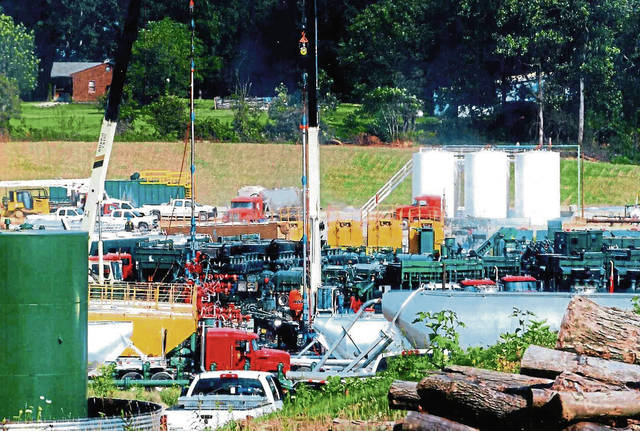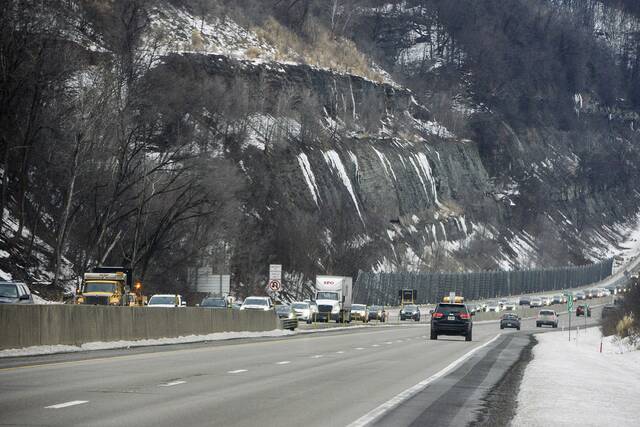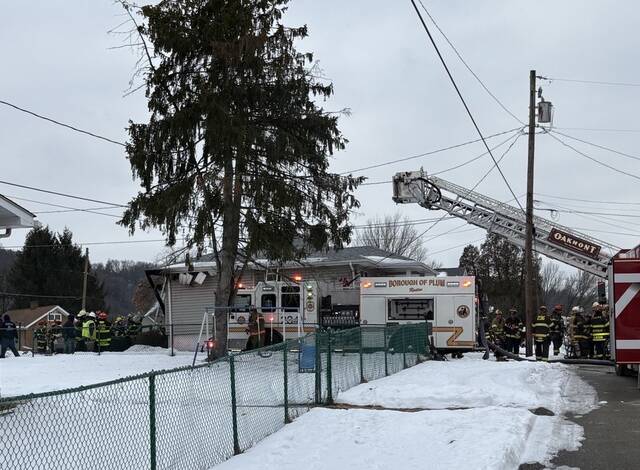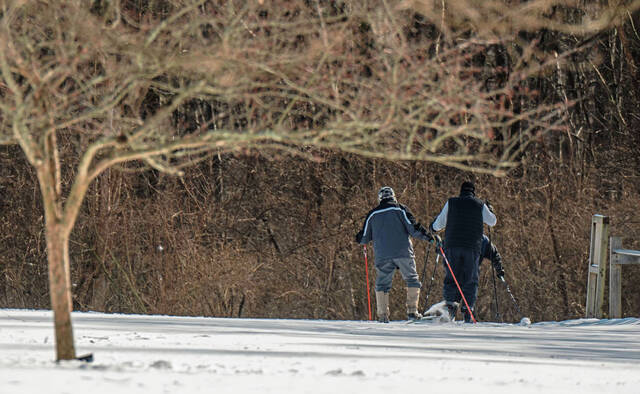Pennsylvania will distribute about $46 million less in natural gas impact fees this year to the state’s counties and municipalities because of the drop in natural gas prices in 2020.
That’s bad news, especially for rural townships in Marcellus shale-rich regions of Southwestern Pennsylvania already coping with pandemic-related income losses.
“It’s tighten your belt time,” said Mark Petros, chairman of the Sewickley Township supervisors, in response to learning the township will get about $129,433 in Act 13 impact fee revenue — about $67,000 less than last year.
Sewickley, like so many other municipalities, uses the money to pave roads, patch potholes and buy anti-skid material to spread on icy roads.
“We never get ahead with the work,” such as repairing washouts from heavy rains that have hit the township, Petros said.
Municipalities such as Sewickley that benefited from the boom in natural gas production, which, in turn, generated more revenue from the impact fee, will see a significant drop in their allocation this year, based on 2020 prices and production.
The state Public Utility Commission said Monday that $146.2 million will be distributed beginning in July from the impact fees on natural gas producers — $46 million less than what was distributed in 2019.
The amount of money the state collects from natural gas producers is based, in part, on natural gas prices. The average natural gas price, set on a benchmark in Louisiana, was $2.05 per million BTUs in 2020, reaching a low of 1.66 per million BTUs in June 2020, according to the U.S. Energy Administration, which tracks natural gas production and pricing. The mild winter in 2020 lessened the demand for natural gas as a heating source, then the covid-related restrictions on the economy cut natural gas production and consumption.
County and municipal governments directly impacted by drilling will receive $71.5 million from the 2020 reporting year. Another $51 million will be transferred to the Marcellus Legacy Fund, which allocates money for environmental, highway, water and sewer projects and rehabilitating greenways.
Westmoreland County’s allocation will fall to $771,895 for 2020 from 233 gas wells, down from $1.16 million for 2019.
Allegheny County saw its distribution from the impact fee fall to $1.08 million for 152 wells, from $1.58 million. The impact fee for the counties takes into account the number of wells within its borders and population.
As usual, Washington and Greene counties will receive the most in impact fees in Southwestern Pennsylvania. Washington will get $4.47 million, while Greene will get $3.21 million.
Twelve counties and municipalities in Southwestern Pennsylvania will receive a combined $33 million from impact fee tax revenue this year, according to the Marcellus Shale Coalition, an industry trade group. While the natural gas industry has repeatedly opposed Gov. Wolf’s attempts to implement a severance tax on gas production, David Callahan, shale coalition president, said the natural gas impact fee has generated more than $2 billion since it was instituted in 2012.
Derry Township will see its allocation drop to $152,275, a loss of about $79,000 from the $231,556 it received a year ago.
With less money from the gas well impact fee, David Slifka, chairman of Derry’s board of supervisors, said the township might have to tap into anticipated revenue from the American Rescue Plan if it wants to make repairs to a retention pond near the Eastern Westmoreland Career and Technology Center.
“We anticipated it (impact fee revenue) going down,” Slifka said, noting the township budgeted about $184,000 from the impact fee revenue for 2021.
The state’s Independent Fiscal Office, however, is projecting that impact fee revenues from this year’s activity will increase $21.4 million, if the number of new wells are about the same as in 2020. If national and regional gas prices rise to levels projected for 2021, then the impact fees will return to the level of previous years, even if there is less drilling activity, the fiscal office said in its June report.
Washington Township will get $132,350, down from $200,760 in 2019; and South Huntingdon will receive $104,652, a drop of $48,000 from a year ago.
Of the two municipalities where fracking has created the most controversy and legal battles, Penn Township will get $28,242, a drop of $14,000 from a year ago, and Murrysville will receive $23,611, a reduction of about $14,300.








